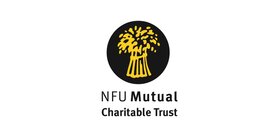Report Synopsis
Can Institutional Investment Capital provide opportunities for Family Farmers and Young Farmers into UK Agriculture?
Over the past 15 years institutional investment into global farming has increased 8 X to over USD45billion and looks set to continue expanding in the decades ahead. This resurgence is being driven by a variety of factors including strong market fundamentals, shifting consumer preferences, evolving supply chains and the desire for diversified real asset exposure by institutional investors.
However, the patterns of this investment to date have been predominantly focused on corporate farming in a narrow range of geographies. Less than ten percent of the USD45bn has been invested into family farm structures which still make up >75% of global agriculture. In the UK, institutional investment into agriculture has only increased 0.25 X over this period and the proportion directly into family farms or indeed young entrant farmers has been virtually nil.
The objective of my Nuffield was to compare UK agriculture with a relevant set of core countries, firstly to better understand the investment patterns above and secondly, to explore innovative business models and structures that are successfully attracting institutional capital into the family farming sector elsewhere, or helping new entrants across the capital gap.
My travels took me through the US, Canada, Spain, Portugal, France, Italy, the Netherlands, Australia and Southern Africa. I also drew from contacts and past experience in New Zealand, Brazil, Argentina and Ireland as well as a network of farming friends and contacts in the UK.
Key Messages and Conclusions from my study are as follows:
- UK farming returns are at the low end of the spectrum of international comparisons, both in absolute terms and cash yields – and both in active (operational) and passive (rental) models
- This is predominantly due to high/over inflated asset values underpinned by the mix of alternative land use potential, tax incentives, and subsidy profiles
- The cultural and relative trust gap between investors and farmers in the UK remains significant largely due to the legacy of the Global Financial Crisis (GFC)
- A worrying shortage of new blood coming into the sector is being compounded by increasing capital barriers to entry
- Despite these challenges, I came across some interesting and exciting business models and approaches that could be applicable to the UK
Key Recommendations for UK Agriculture:
- We need a new, clear, inspiring vision for UK agriculture with supporting subsidy profile aligned to a revamped diet-focused health policy
- UK farming should focus on competitive advantages of quality and sustainability. We cannot compete with the US or Brazil on an open market without the environment continuing to bear the cost of cheap food
- We need to acknowledge and address the young entrant farmer issue more directly and more proactively in conjunction with the ageing farmer issue
- Review and revise the tax relief legislation on UK farmland to ensure that it is fit for purpose.
Gus Selby

NFU Mutual Charitable Trust

Similar Reports
- 2024
Is tracking carbon on farm good for business?
Pippa Jones - 2022
Cannabis in Australia: cultivating at scale and lessons from overseas markets
Max Edgley - 2022
Can carbon neutral insects be farmed profitably?
Dr Olivia L. Champion - 2022
Sustainable financing of Brazilian farming: the role that supply chains can play and carbon markets probably will not
Renata Rossetto Lopes
